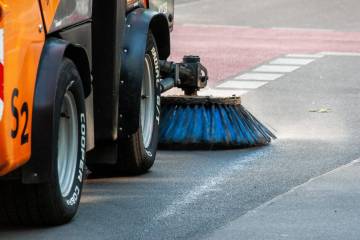Swimming pool water can be dangerous if it is not kept in good condition. The water from swimming pools can be involved in the transmission of diseases such as otitis, conjunctivitis, and various intestinal infections. In any case, it is possible to prevent these problems if the water is kept in good condition, using the following products as needed:
Chlorine
Chlorine keeps the water free of bacteria since its function is to destroy these microorganisms. Therefore, it is important to carry out the treatment with the appropriate amount of chlorine, taking into account the volume of water contained in the pool. After having dosed the chlorine, it must be periodically checked to ensure that its level is not excessively high or low, and for this purpose test strip kits can be used that allow it to be measured. The chlorine level should be maintained between 0.4 and 1.5 parts per million (ppm). It is not advisable for it to be at a higher value, as it can be toxic to people. Low levels of chlorine, on the other hand, can allow bacteria to grow.
pH of water
In swimming pools it is important to control the pH of the water at least once a week, using the measurement kit. This value directly influences the effectiveness of chlorine. The pH should be between 7.2 and 7.8. If the pH is higher or lower, the effectiveness of chlorine as a germicide decreases. Therefore, if the pH is not at the appropriate levels, a product that increases (alkalizing) or reduces (acidifying) it must be used.
Algaecides
This product is used to eliminate algae present in the pool, which causes the water to turn greenish and the walls and bottom of the pool to become slippery. It is necessary to periodically add the appropriate dose of algaecide to the pool, especially each time the water is renewed.
Flocculants
Also called coagulants or clarifiers, they are used when the water has become cloudy due to the presence of suspended particles. Flocculants increase the size of these particles and cause them to settle to the bottom of the pool, to facilitate cleaning through the use of the pool sweeper.
To ensure the effectiveness of these products, it is necessary to strictly respect the instructions on the label, regarding dosage, precautions, and storage conditions. In addition, they should always be kept out of the reach of children and pets. It is important to note that all products must be applied in the absence of bathers and that the water must be recirculated after application.
Anyway, maintaining a pristine pool involves various tasks, from chemical balancing to equipment checks. For an in-depth look at these essential practices, our guide on ‘What does pool maintenance include?‘ provides all the answers. Hopefully, this short article has given you “insight” into what should be involved in maintaining swimming pool water according to modern standards. Thanks for reading and have a good day!



